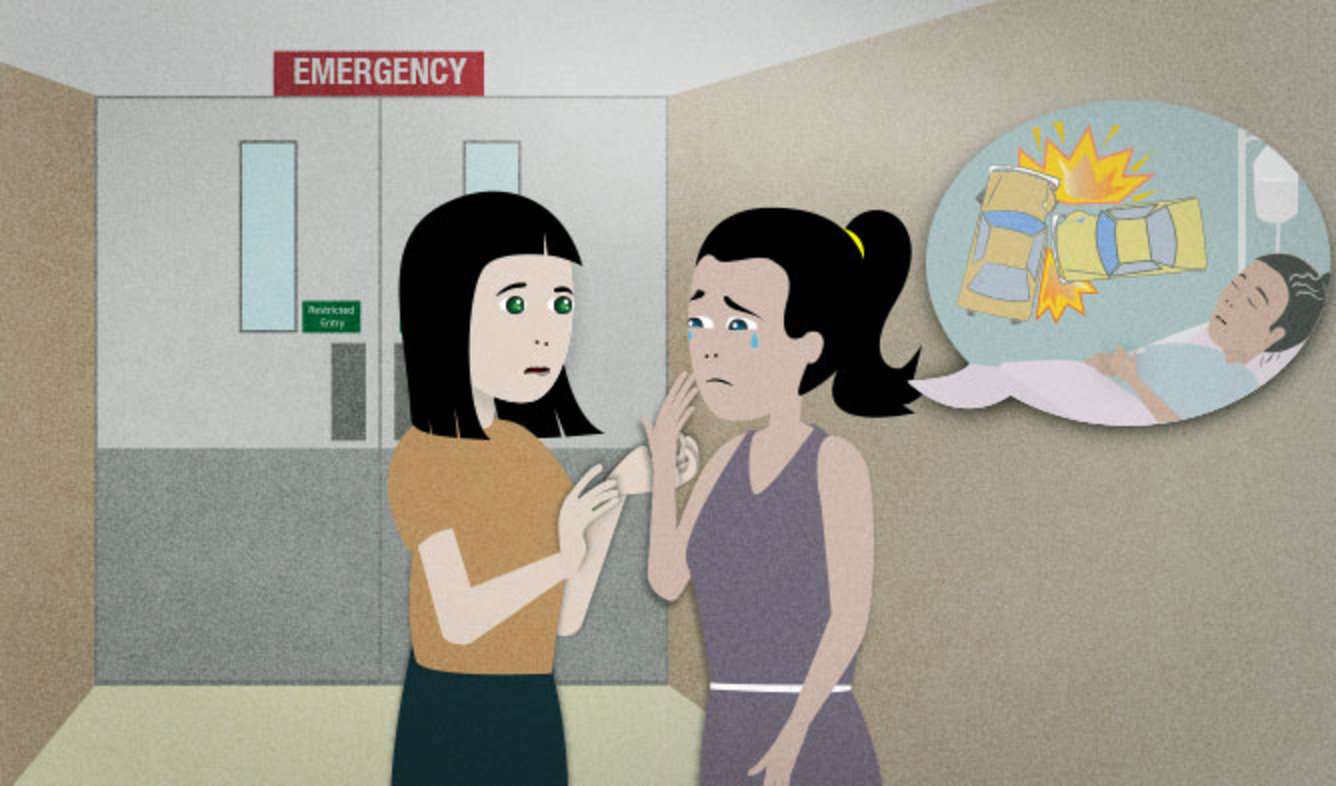“Have they given you any updates on her condition?”
Your close friend's mother was hurt badly in a car accident. She's in the hospital and doctors are doing surgery. You go to the hospital to wait with your friend. When you see her, you ask this.
Have they given you any updates on her condition?
Want Video and Sound? Follow us on YouTube

any (something)
The words "some" and "any" have almost the same meaning. But you use "some" in positive sentences:
He didn't study at a four-year university, but he does have some formal training.
"Any" is used in negative sentences like this:
It's also used in questions, like:
Is there any tea left?
give (someone) an update
"Giving an update" means telling someone the newest information about something.
For example, if you're working on a project at work, your boss might ask you to give her an update every day or two. Your update will include information about how soon you will be done, what problems you've had, and so on.
You can also use "update" as a verb:
Please update Jana if anything changes.
But "update" as a verb is more formal than "give (someone) an update". It sounds a little like military speak.
(someone's) condition
During surgery, childbirth, etc. at a hospital, doctors update the patient's family with information about the patient's health. In this kind of situation, the doctors refer to the patient's health as their "condition".
There are a few specialized terms that doctors use to describe a patient's condition:
- A patient in "critical condition" is in danger of dying.
- A patient in "stable condition" is no longer in as much danger.
- A patient in "good" condition is OK and just needs to rest.
If someone is in the hospital and you don't know if they're OK, you can ask:
What's his condition?
Another place where a person's "condition" is discussed is on the news.
